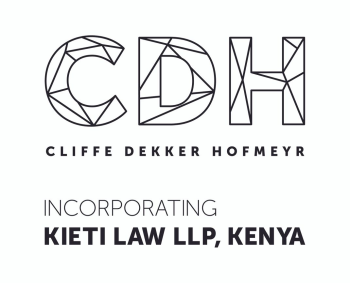Introduction
Taxpayers often enter into arrangements under which a company buys back its own shares held by certain shareholders, and immediately thereafter issues new shares to new shareholders. This practice has long raised tax avoidance concerns for the South African Revenue Service (SARS), as it could circumvent the payment of capital gains tax by the shareholder whose shares are bought back.
Example
Company A holds shares in company B. Company A wishes to sell these shares to company C. Rather than entering into a sale of shares agreement with company C, company A opts to enter into a share buy-back agreement with company B. Immediately thereafter, company C enters into a subscription agreement with company B.
The benefits of entering into the latter arrangement is that company A receives an exempt dividend from company B and is not liable for capital gains tax on the disposal of the shares to company B to the extent of the dividend. Similarly, company C is liable for no tax in respect of the subscription for shares in company B and company B is not liable for capital gains tax in respect of the issue of shares. This is therefore a tax-efficient and favourable arrangement for all parties concerned – except for SARS.
The risk is that SARS may view the share buy-back and subsequent issue of shares as a disguised sale between company A and company C.
SARS notice
On March 16 2015 SARS issued Government Notice 38569, which identifies as a 'reportable arrangement' for purposes of Sections 35 and 36 of the Tax Administration Act (28/2011) an arrangement under which:
- a company buys back shares on or after the date of publication of this notice from one or more shareholders for an aggregate amount exceeding R10 million; and
- that company issued or is required to issue any shares within 12 months of entering into that arrangement or of the date of any buy-back in terms of that arrangement.
The effect of the notice is that any share buy-back and issue arrangement which falls within the ambit of the notice now places a disclosure obligation on any participant of information in respect of the arrangement for purposes of Part B of Chapter 4 of the act. The participant must disclose certain information within 45 business days of the arrangement qualifying as a reportable arrangement for the purposes of the act, or must disclose the information within 45 days of the date of becoming a participant to that reportable arrangement.
Section 38 of the act provides that the following information must be submitted to SARS in relation to the reportable arrangement, in the prescribed form and manner and by the date specified:
- a detailed description of all of the steps and key features of the arrangement including, in the case of an arrangement that is a step or part of a larger arrangement, all the steps and key features of the larger arrangement;
- a detailed description of the assumed tax benefits for all participants, including tax deductions and deferred income;
- the names, registration numbers and registered addresses of all participants;
- a list of all agreements of the arrangement; and
- any financial model that embodies the projected tax treatment of the arrangement.
Section 212 of the act previously stated that a participant that fails to disclose the information in respect of a reportable arrangement – as required by Section 37 of the act – is liable for a penalty for each month that the failure continues (limited to 12 months) in the amount of:
- R50,000 in the case of a participant other than the promotor (ie, the person principally responsible for organising, designing, selling, financing or managing the arrangement); or
- R100,000 in the case of the promotor.
The section further stated that the amount of the penalty is doubled if the amount of the anticipated tax benefit for the participant due to the arrangement exceeds R5 million and tripled if the benefit exceeds R10 million. However, the notice has now amended the act by causing any arrangement referred to in Section 35(1) of the act to be an excluded arrangement – as contemplated in Section 36 of the act – if the aggregate tax benefit which is or may be derived from that arrangement by all participants to that arrangement does not exceed R5 million. Thus, the notice provides some relief in respect of share buy-back and issue transactions.
Taxpayers should bear in mind that Section 234 of the Tax Administration Act makes it a criminal offence to wilfully and without just cause fail or neglect to disclose to SARS any material facts which should have been disclosed under the act or to notify SARS of anything which the person is required to notify SARS of under a tax act. If a person is convicted of such criminal offence, he or she is subject to a fine or imprisonment for a period not exceeding two years.
For further information on this topic please contact Mareli Treurnicht at DLA Cliffe Dekker Hofmeyr by telephone (+27 11 562 1000) or email ([email protected]). The DLA Cliffe Dekker Hofmeyr website can be accessed at www.cliffedekkerhofmeyr.com.
This article was first published by the International Law Office, a premium online legal update service for major companies and law firms worldwide. Register for a free subscription.



